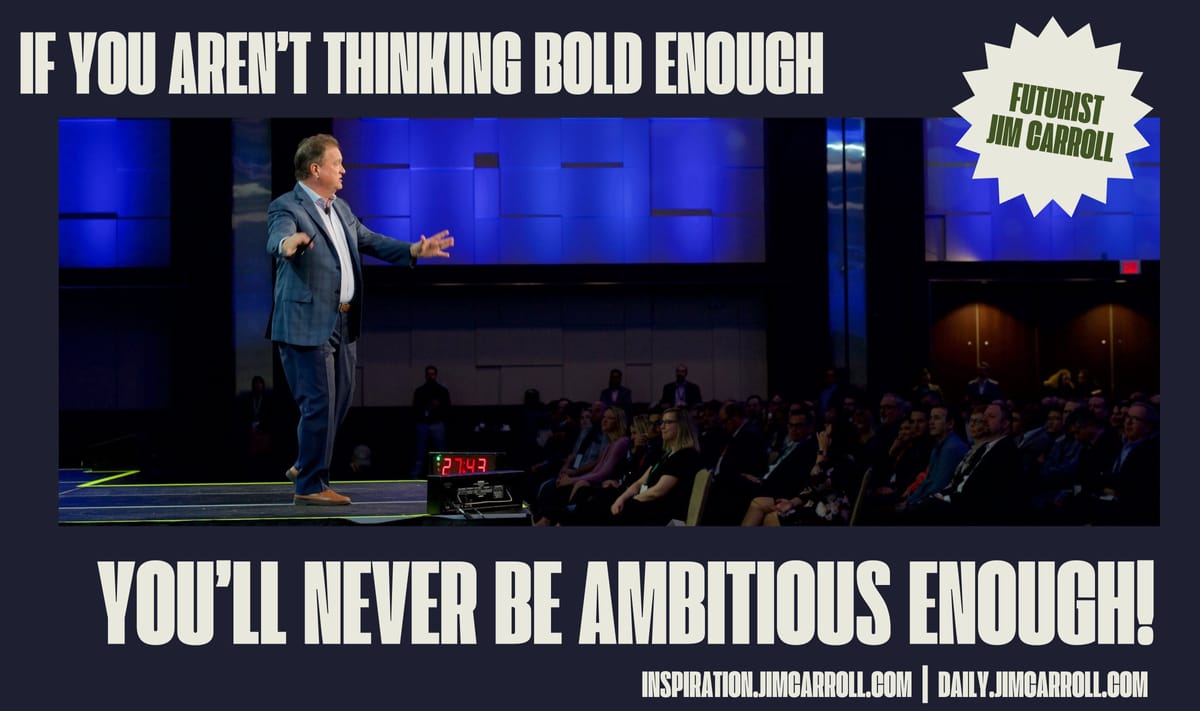"If you aren't thinking bold enough you'll never be ambitious enough!" - Futurist Jim Carroll
The world will not be transformed by people using chatbots and ChatGPT and drawing pictures with AI generators.
It will be fully disrupted by the other AI trends that really matter - what I call the AI Megatrends. That's been the key message in many of my recent and upcoming keynotes, and it might be helpful to understand how this particular storyline unfolds from the stage by looking at a series of slides I recently shared.
Take the world of healthcare, medicine, and pharmaceuticals - and step away from AI for a moment into the bigger, long-term trend transforming the industry. The simple fact of the matter is that we are moving from being an industry that just fixes people AFTER they are sick, to one in which we have a better understanding of what they might become sick with BEFORE they are sick. With that knowledge, we can rearchitect the delivery of healthcare resources to where it matters - a world of preventative medicine - one based on complex science, genetic medicine, medical device connectivity, pharmacogenetics, and so much more.
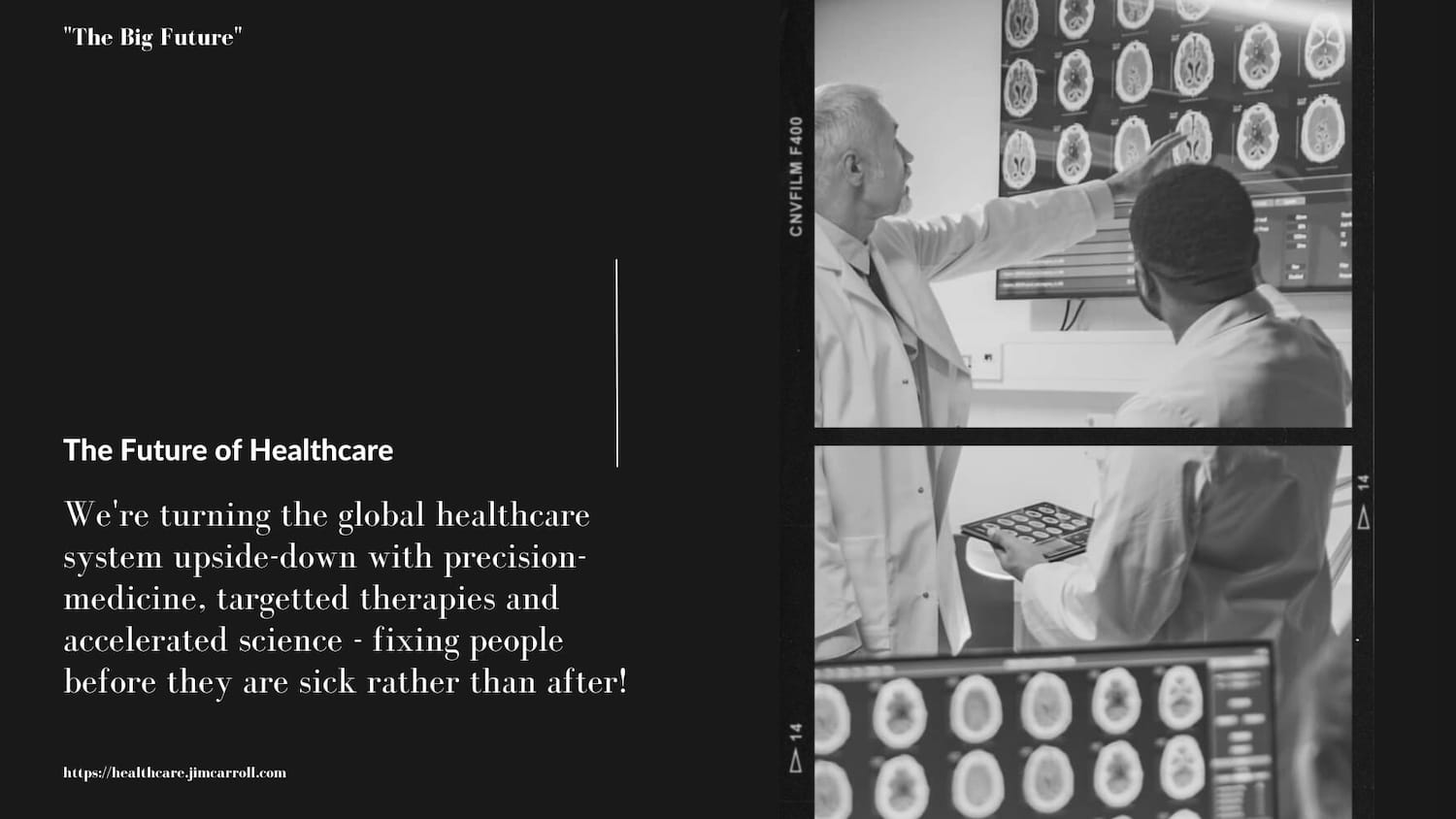
And so while many medical professionals will be learning how to incorporate ChatGPT-like information searches in their day-to-day lives - and learning how to deal with the accuracy issues - the spending on AI beyond large-language model technologies like this is set to explode - going from perhaps $10 billion to $177l.4 billion in but 8 short years. That's a huge leap!
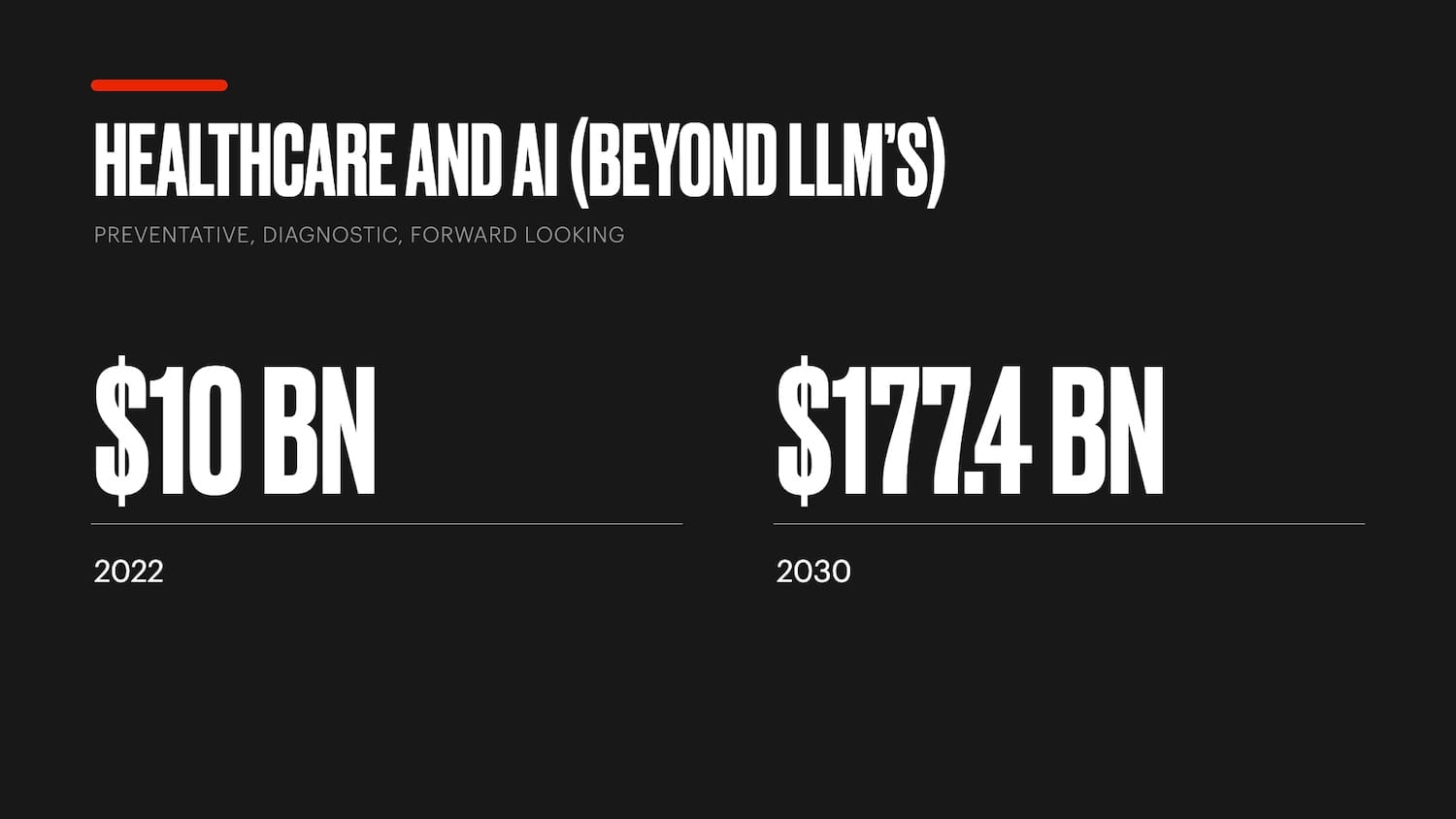
What we are witnessing is a vast range of new concepts, methodologies, forms of treatment, new ways of diagnosing and treating disease - and so much more. Perhaps the world of healthcare will involve a lot of patient and knowledge virtualization.
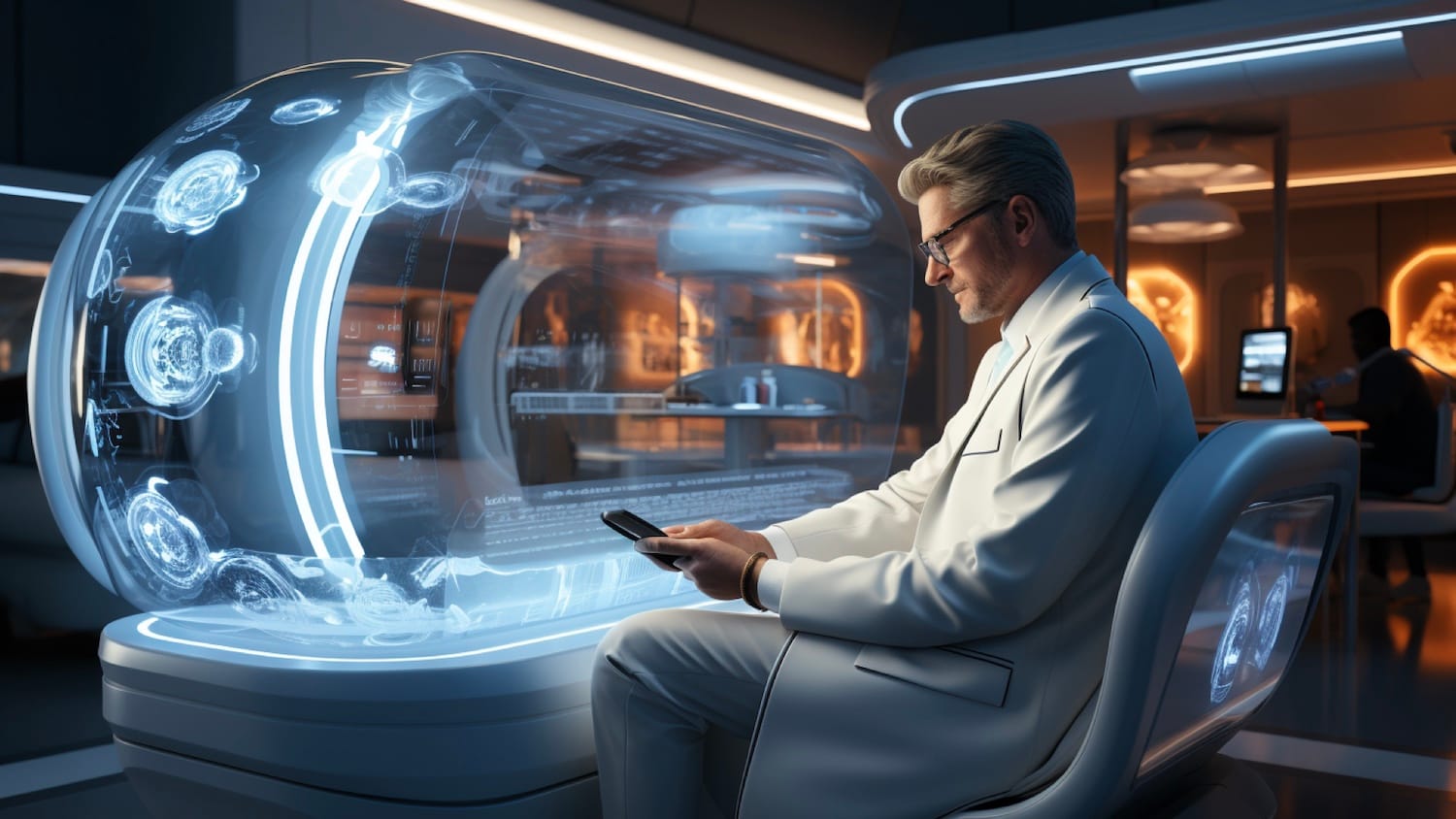
What does this lead to? Massive change! Already and into the future, AI will be used for a vast range of new ways of working, including:
- medical image analysis
- personalized medicine
- medical device connectivity
- medical device monitoring
- disease diagnosis
- advanced patient monitoring
- digital twin / surgical planning
- chronic disease management
- medical research acceleration
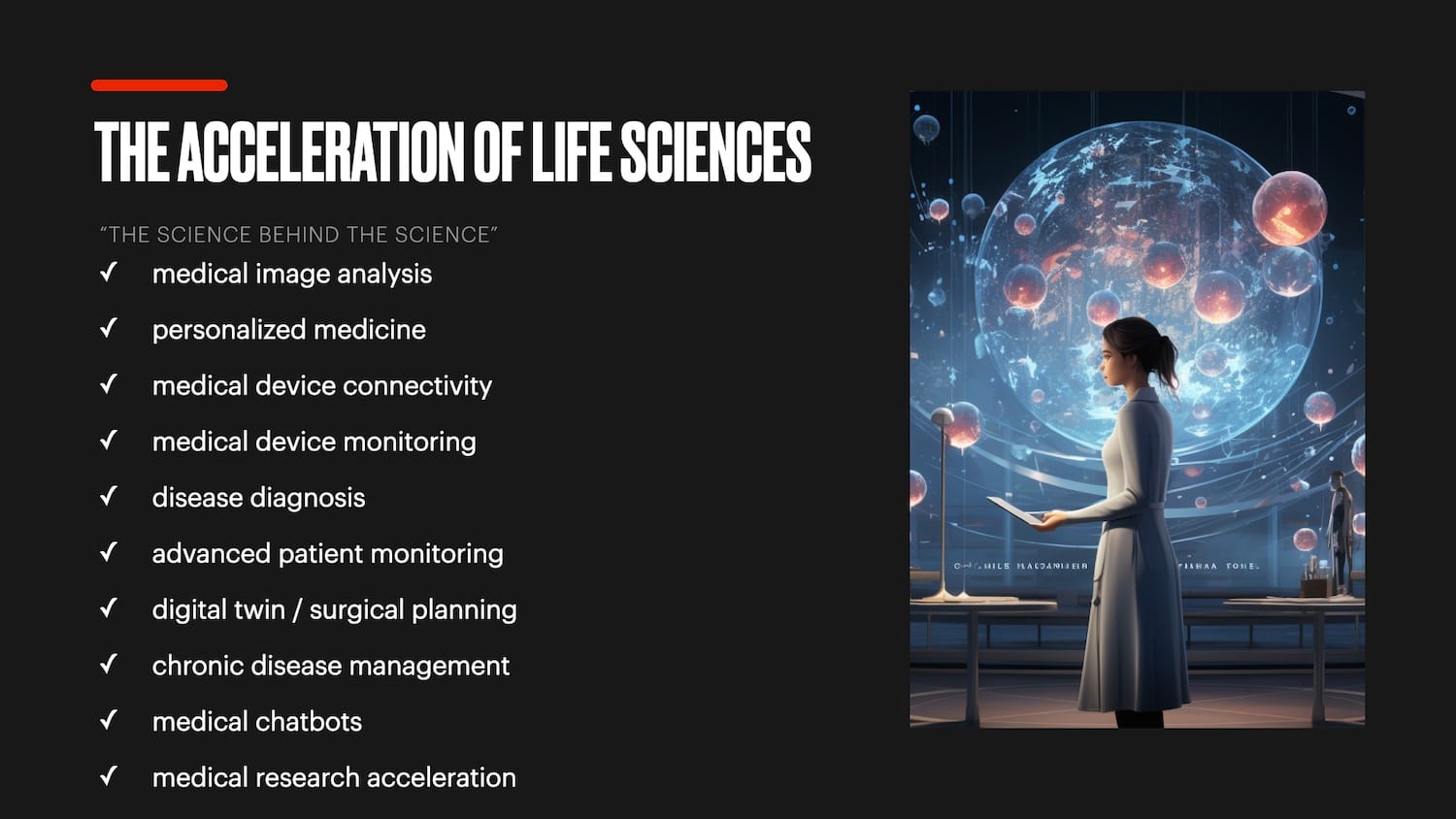
Drilling down, if you look into how it will change the world of drug development, there are some pretty profound changes and opportunities underway, including new advancements that will help us to:
- identify candidate molecules faster
- undertake earlier disease diagnosis
- look at past trial data sets
- predict patient response to treatments
- do faster analysis of massive data sets from discovery trials
- change the way we do patient recruitment and enrolment
- predict potential adverse drug reaction
Perhaps the biggest trend is that AI will help us align to the emerging disruptive ‘real-time trial’ trend - with medical device connectivity and more, we now can gain instant, real-time information on how well a candidate molecule might be working, helping us to compress the drug development cycle.
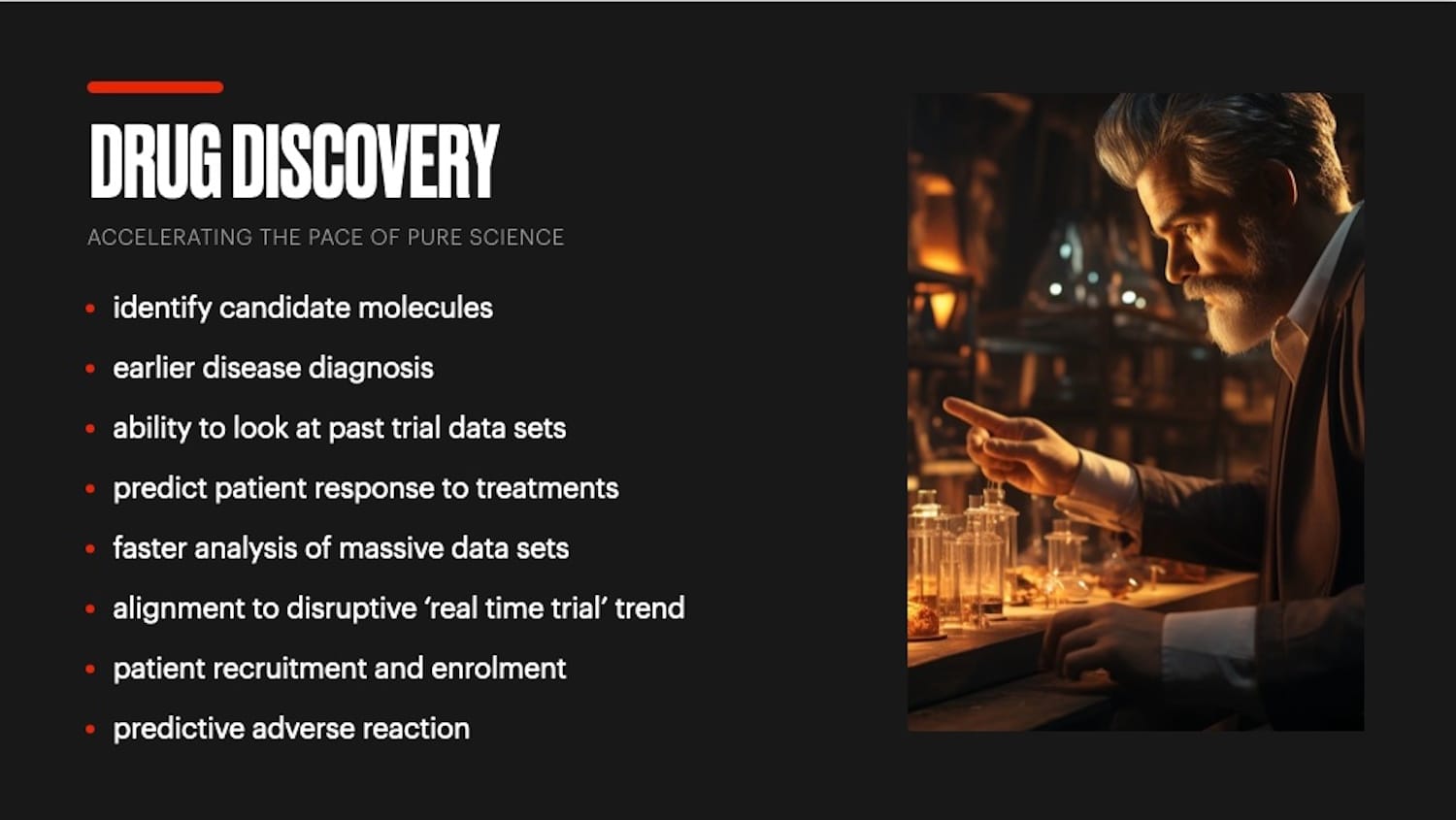
Why is this important? Because the current method of drug discovery is not working well - it is slow, inefficient, and lacking in a lot of things. My research dug out these nuggets of insight:
- 80% of clinical trials fail to meet original enrolment deadlines
- 55% of trials are terminated due to failure to achieve full enrolment
- current clinical trials have a failure rate of 84.6% (“Trends in Pharmacological Sciences 44(9) 561-572”)
- Just 3% of US adult cancer patients participate in clinical trials and 40% of those trials fail to get minimum patient enrollment, per Johns Hopkins
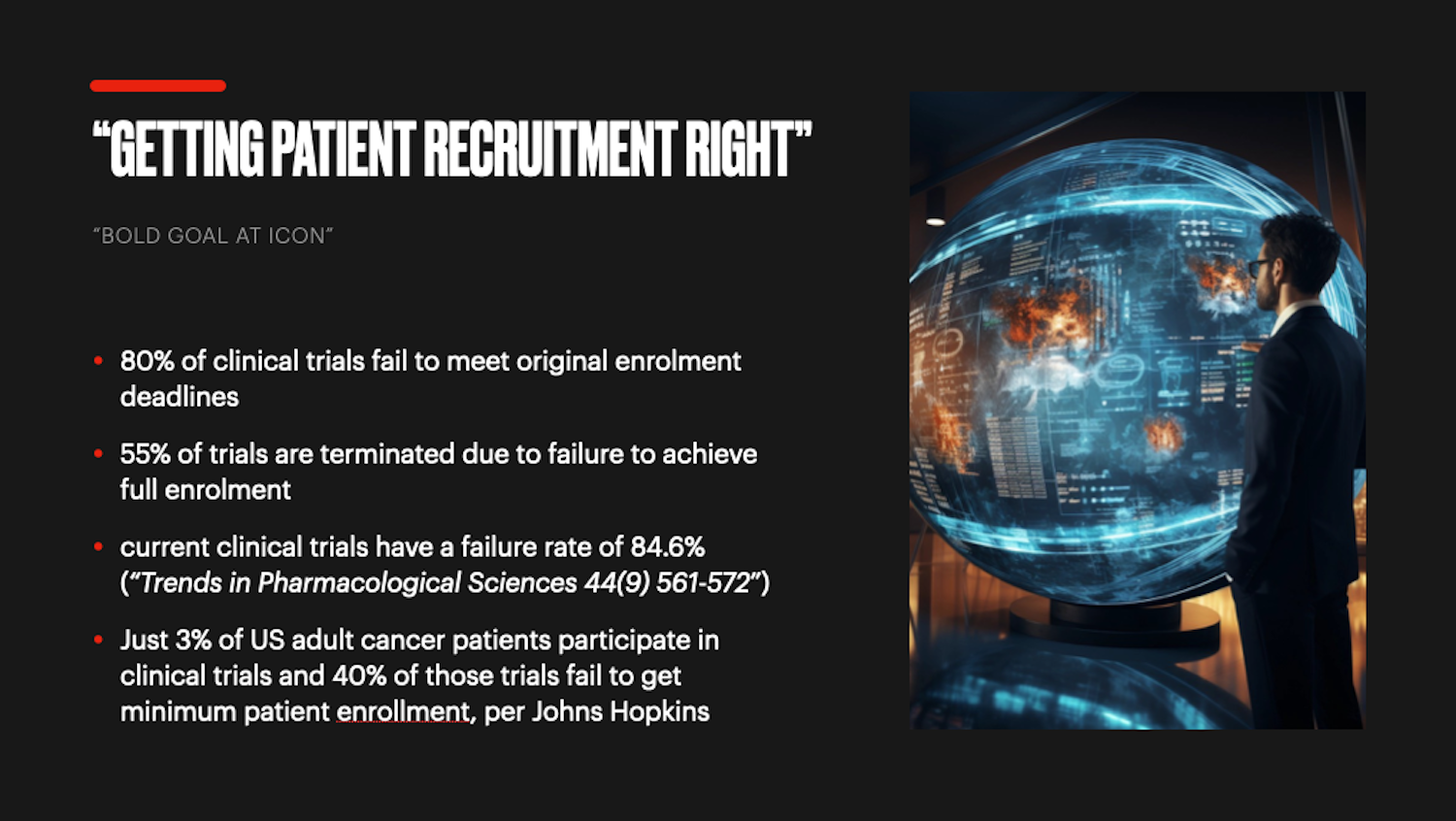
But how might AI help us? There are already provable results:
- a 20% reduction in the cost of 20 drug development programs at Johnson & Johnson
- 80%. accuracy in predicting trial outcomes
- 10% improvement in clinical trial success rates (research reports)
- 70 to 80% improvement in accuracy in predicting patient response to immunotherapies
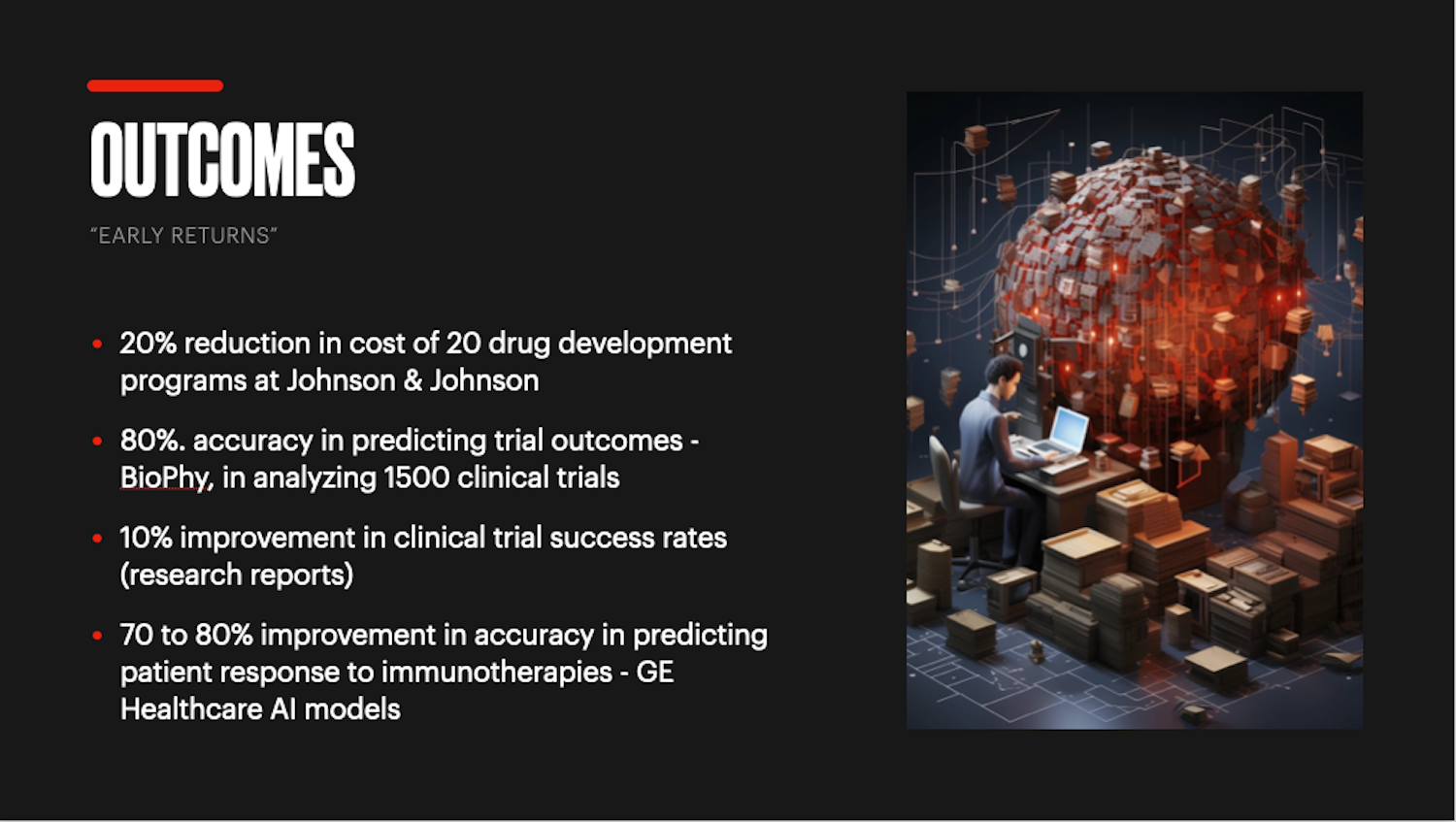
This is real-world stuff, driven by the AI Megatrends - and this is why we need to get 'beyond ChatGPT' into the real issues that matter.
For legacy companies, this type of insight matters - because if they aren't thinking big and bold enough about how their future is changing, it's pretty much a certainty that someone else is!
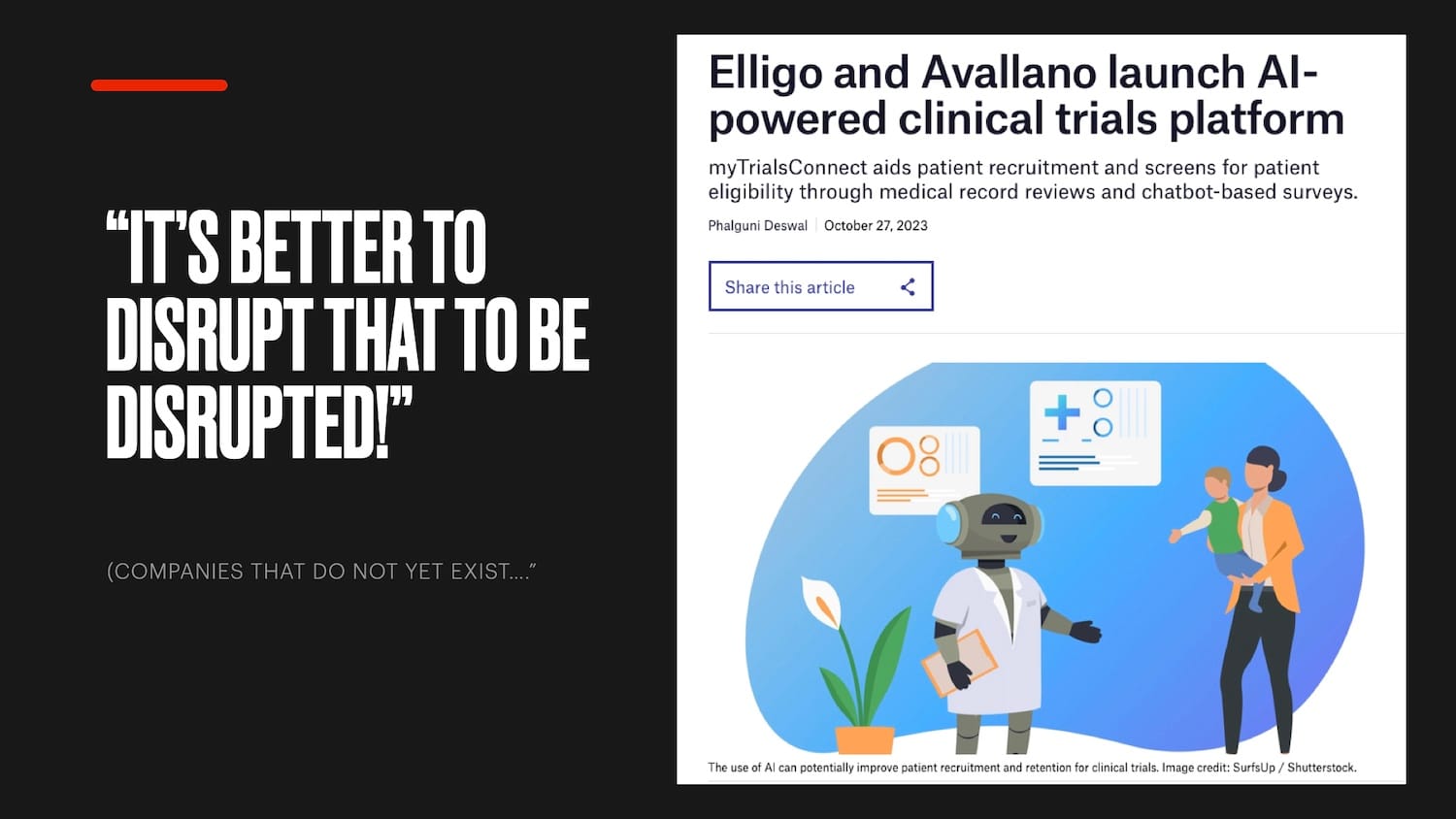
And that's the key to the future - thinking BIG and BOLD about tomorrow so that you can ensure that your ambitions match the scope of the future that you need to align to.
Because, after all, nothing great was ever achieved by being small and timid.
Futurist Jim Carroll learned long ago that when a particular new trend is overhyped, most people tend to focus on the wrong aspect of the trend!

